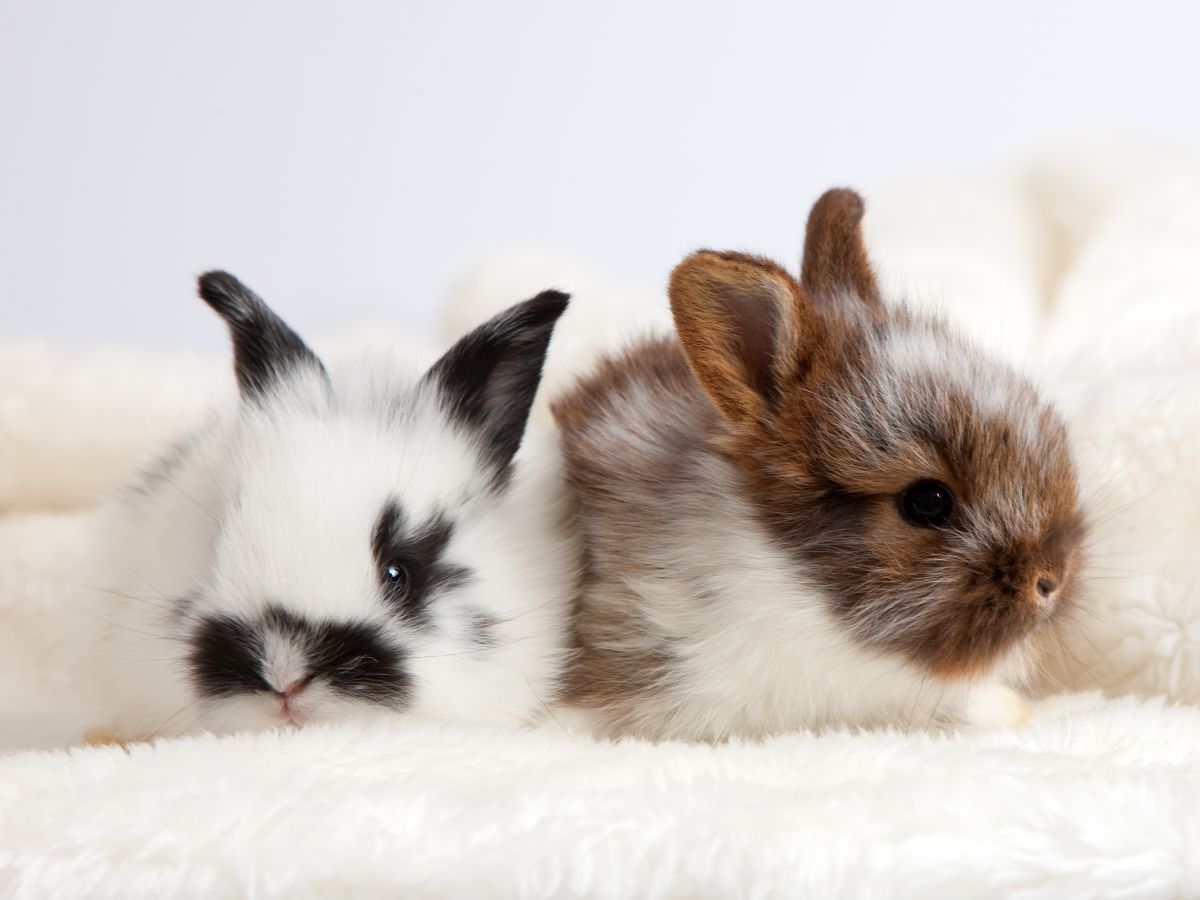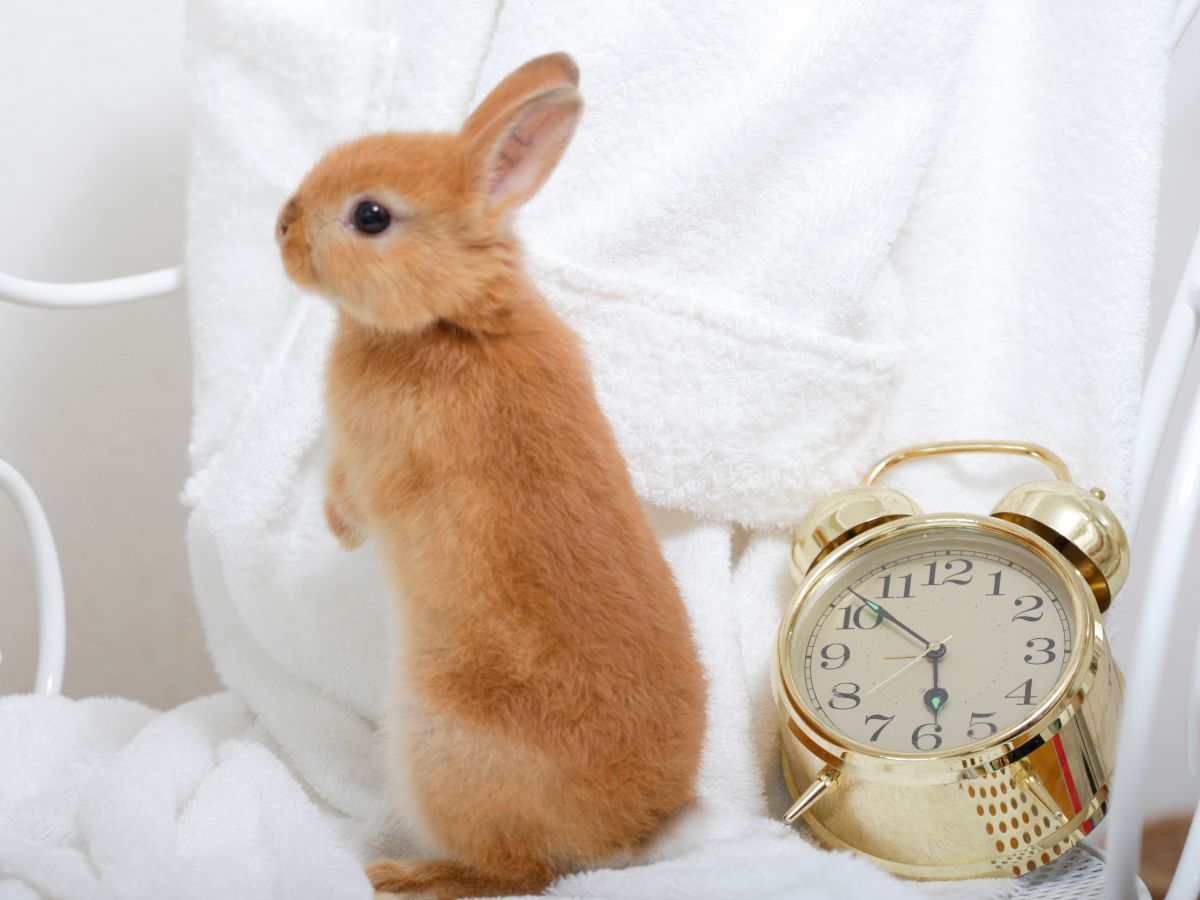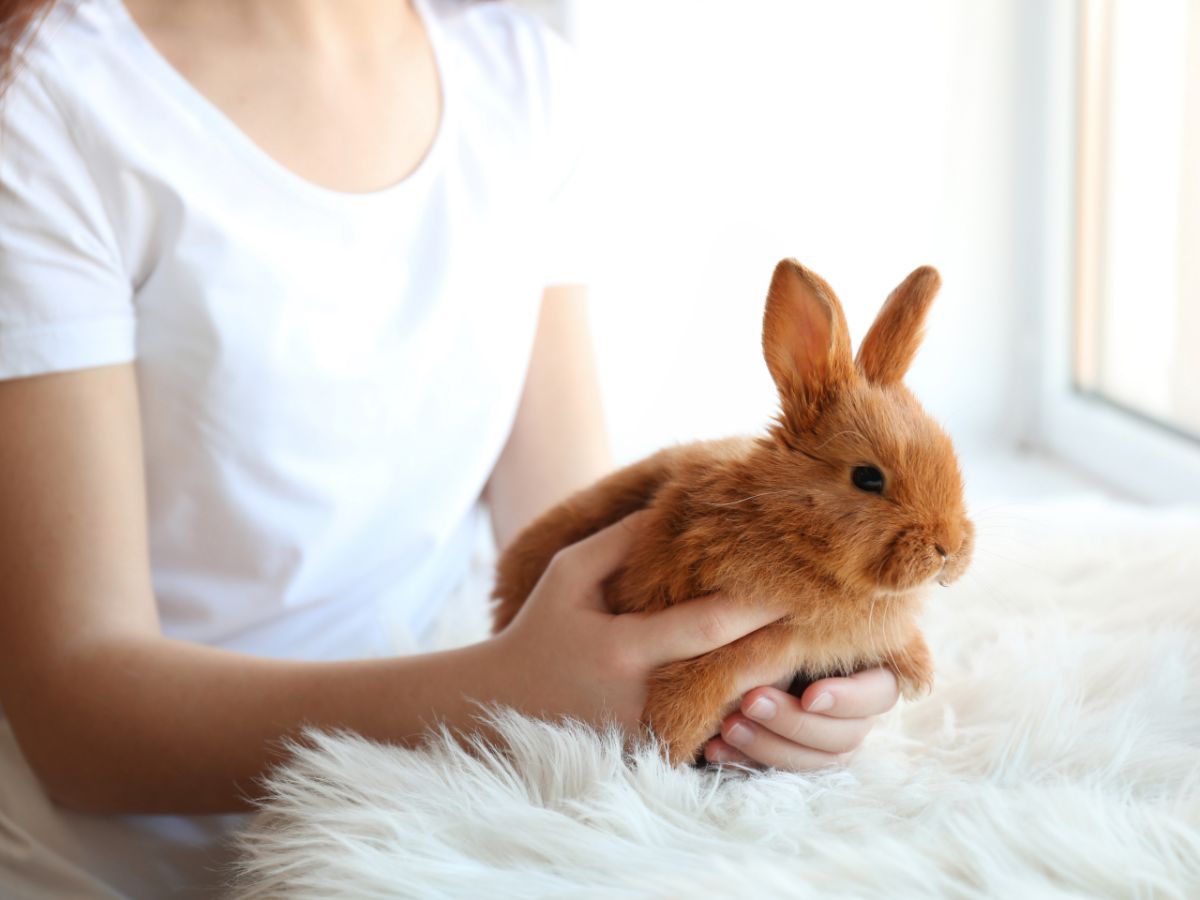We all love the idea of a bunny as a house pet – however, what some people don’t realize is that adopting a bunny is no short-term commitment. Bunnies have the tendency to live for many years in a happy home!
Domesticated bunnies can live on average between 5 and 12 years, with most bunnies living at least eight years. This lifespan, however, is mainly dependent on the type of bunny. The smaller breeds or dwarf breeds are known to live longer than the larger breeds.
If you are looking at getting your family a bunny, you will need to know what breed of bunny you want and how long these little guys can live. You will also need to consider various factors to ensure it lives a long and healthy life. Read on and find out how old you can expect your bunny to get and how to ensure it ages healthily!
Contents
How Old Can Bunnies Get?
On average, domesticated bunnies live between 5 and 12 years, with some living to 15 years.
Unlike your bunnies’ wild relatives, these fluffy creatures can live for a very long time, with an average of around eight years. In the wild, however, bunnies may live for only a year.
Knowing the lifespan of a pet bunny is essential in deciding whether to get one or not. If you can’t commit to caring for a bunny for at least ten years, then getting a different pet with a shorter lifespan is probably better.
When deciding which bunny to get, it is a good idea to see if you can obtain some information about what breed it is and how large it grows. Smaller dwarf bunnies tend to live longer than larger breeds. Read the list below and see the average lifespan of various domesticated bunnies:
| Bunny Breed | Lifespan |
| Mini Rex | 5 – 7 years |
| Dwarf Hotot | 7 – 10 years |
| Mini Lop | 5 – 10 years |
| Netherland dwarf | 10 – 12 years |
| Harlequin | 5 – 8 years |
| Himalayan | 5 – 8 years |
What Do Bunnies Need To Stay Healthy and Live Long?
While the breed of the bunny significantly affects how long it lives, there are other factors to consider. If you want to keep your bunny living a healthy, long life, it’s a good idea to focus on its diet, where it stays, how much exercise it gets, and whether it has a companion.
Maintain A Balanced Diet For Your Bunny
Besides a bunny’s breed, its diet can also affect how long it lives. A bunny needs to maintain a healthy, well-balanced diet in order to age well and live long.
One thing to know is that bunny pellets from your local pet shop are not enough. These pellets are a necessary part of their diet but do not contain enough nutrients to be their only food source.
Depending on the age of the bunny, the nutritional needs differ. The major difference between young and older bunnies is that young bunnies require alfalfa-based pellets, whereas the older bunnies should have grass hay or timothy pellets. Around seven months old, you can start the process of moving your young bunny onto timothy pellets.
On top of the pellets, your bunny should have access to fresh green vegetables. These vegetables will provide the extra nutrients not found in the pellets and help them grow and age healthily.
Vegetables that are a great option for your bunnies’ diet:
- Lettuce
- Bok choy
- Basil
- Watercress
- Carrot tops
- Mustard greens
Even though we are familiar with the image of the very famous Bugs-bunny chomping down on his carrot, this vegetable is not the greatest idea for your bunny and can upset its stomach. Both carrots and potatoes should be given sparingly as they are high in carbohydrates and difficult to digest.
The key to helping your bunny live a long and healthy life is to give it access to various foody options and fresh water.
Let Your Bunny Live Indoors
An interesting difference between whether a bunny lives long or not is whether they are kept indoors or outdoors. Bunnies who live indoors are known to live longer.
While this may be logical to some, it can confuse others. Many people assume that keeping their rabbits outdoors is closer to their natural habitat and thus is better for them – this, however, is not true.
Bunnies who live outdoors are exposed to harsher weather conditions and live a rather anxious life. They may experience extreme cold and warmth, and the stress of dealing with the elements can end their life early.
It is always preferable and advisable to give your bunny a space inside your home to protect it from the elements outside and ensure that it feels safe and calm.

Exercise Your Bunny
Bunnies need exercise in order to stay healthy. Frequent exercise is crucial for their body and mind and will help your bunny live to old age.
It is crucial that, if your habit is in a hutch outside or indoors, at least once a day, it has a moment to run around your garden free of constraints. The fresh air and access to new spaces will be stimulating for your bunny, which will help keep your bunny happy.
If you want to help exercise your bunny, you can give It a space to dig, hide some food around the garden so it can run around and explore, or create an obstacle course with varying levels to jump and run through. There are various bunny toys available at the stores which can be implemented to make the exercise time fun and stimulating for your bunny.
Give Your Bunny A Friend
Bunnies are known to be very social animals. These fluffy guys can become lonely, bored, and unhappy on their own – it is always best to have more than one bunny.
Many people don’t realize that bunnies need a companion almost as much as they need food and water. These small creatures rely on companions for not only play time but also for warmth and security.
Studies have shown that bunnies living alone live shorter lives than those with a companion. This is no surprise, given that bunnies live in communities of between 10 and 15 bunnies in the wild.
If you have only one bunny, it might be time to introduce another – but best do so carefully. Bunnies are territorial and protective of their space, so a slow introduction is best!
Conclusion
In conclusion, domesticated bunnies live on average between 5 and 12 years, whereas their wild relatives often live a much shorter life of, sometimes, only a year or two!
To ensure your bunny lives a long and healthy life, you need to check that your bunny has a well-balanced diet, gets exercise, lives indoors, and has a fluffy companion!




